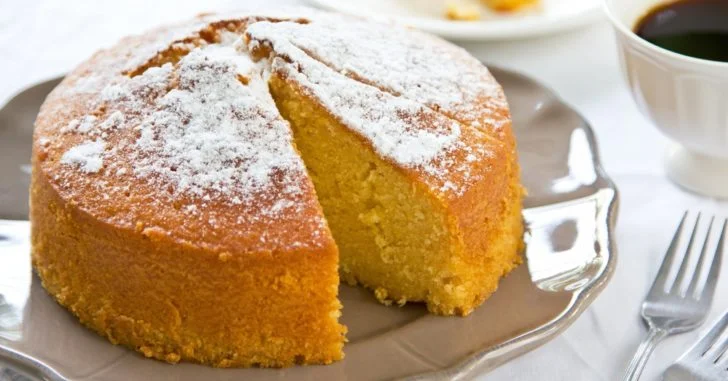Many people have been enjoying butter cakes for their rich taste and soft crumb for ages. For millennia, this traditional cake kind has been a mainstay in baking loved for its adaptability and soothing flavor. Butter cakes have advantages and drawbacks, though, just as any cuisine. This post will go over both sides, therefore clarifying why butter cakes are a preferred choice and when they might not be the best one.
What Is a Butter Cake?
Butter cakes are cakes where butter is a key ingredient, providing structure, flavor, and moisture. The basic ingredients include:
- Butter: Creamed with sugar to create a light texture.
- Sugar: Adds sweetness and helps create a tender crumb.
- Eggs: Provide structure and richness.
- Flour: Forms the base of the cake’s texture.
- Leavening Agents: Baking powder or baking soda for rise.
- Milk or Other Liquids: Add moisture and softness.
These cakes are often baked for celebrations, birthdays, and holidays due to their rich and indulgent flavor.
The Pros of Classic Butter Cakes
1. Rich Flavor
The star ingredient in butter cakes is butter itself, which also provides their unique, creamy taste. The butter’s smoothness complements sugar and eggs to provide a taste that is both decadent and gratifying. Butter cakes are therefore a great option for special events since they reflect this.
2. Versatility
Butter cakes are rather flexible. To personalize the cake, toss in other flavors as vanilla, chocolate, lemon, or almond. From butter cream and ganache to fresh fruits and nuts, they also go great with a variety of frostings, fillings, and toppings.
3. Moist Texture
Made right, butter cakes have a delicate crumb and are moist and soft. Using butter and sugar whisked together, the creaming technique adds air to the batter to produce a light but rich cake.
4. Widely Loved
Universal appeal is seen in butter cakes. People of all ages enjoy their traditional taste and smooth texture, which guarantees they are hardly left uneathered at events.
5. Easy to Bake
Butter cakes are beginners’ friend with basic ingredients and easy directions. For those just starting out in baking, most home bakers can produce decent results with little effort.
The Cons of Classic Butter Cakes
1. High Caloric Content
Because butter and sugar abound in butter cakes, they have great calorie density. Especially for individuals maintaining their weight or controlling health issues, a normal slice can have large amounts of fat and sugar, which could not fit dietary requirements.
2. Not Ideal for Certain Diets
Due to the high content of dairy and eggs, butter cakes aren’t suitable for:
- Vegans
- People with lactose intolerance
- Those with egg allergies
3. Can Be Dry if Overbaked
Butter cakes have a delicate balance of moisture. If baked even slightly too long, they can turn dry and crumbly. This makes careful monitoring of baking time essential.
4. Heavy Texture
Compared to lighter cakes like sponge or chiffon, butter cakes have a denser texture. While some enjoy this richness, others may find it too heavy, particularly after a large meal.
5. Shorter Shelf Life
Butter cakes are best enjoyed fresh. Over time, they can lose moisture and become stale, especially if not stored properly. Refrigeration helps but can slightly alter the texture.
Tips for Baking the Perfect Butter Cake
- Use Quality Ingredients:
- Opt for unsalted, high-quality butter for the best flavor.
- Measure Accurately:
- Use a kitchen scale or measuring cups for precise measurements.
- Cream Butter and Sugar Thoroughly:
- Beat until light and fluffy to incorporate air into the batter.
- Don’t Overmix:
- Once you add flour, mix just until combined to avoid a dense cake.
- Monitor Baking Time:
- Check for doneness with a toothpick. It should come out clean or with a few moist crumbs.
- Store Properly:
- Keep the cake in an airtight container at room temperature for up to 3 days or refrigerate for longer storage.
When to Choose Butter Cakes
Butter cakes are perfect for:
- Celebrations: Their rich flavor makes them ideal for birthdays, weddings, and anniversaries.
- Layered Cakes: Their sturdy structure holds up well under layers of frosting.
- Custom Creations: If you enjoy experimenting with flavors and decorations, butter cakes provide a versatile base.
When to Consider Alternatives
You might opt for a different type of cake if:
- You Want Something Lighter: Sponge or chiffon cakes are airier and less dense.
- You Have Dietary Restrictions: Vegan or gluten-free cakes might be better suited to your needs.
- You’re Watching Your Calorie Intake: Consider lower-fat options like angel food cake.
Conclusion
Rich taste, moist texture, and adaptability make classic butter cakes much-loved. Both for festivities and casual baking, they are a great choice. They do, however, have several disadvantages including high calorie count and unsuitability for some diets. Knowing its advantages and drawbacks will help you determine whether a butter cake would be appropriate for your next baking endeavour. Whether your level of experience with baking is low or high, the traditional butter cake is still a great treat worth learning.
